Monday, 3rd
No prizes for guessing which road we are taking this morning. Satara means the S126 Sweni Road. We are fifth in line at 5.15am and at 5.30 out we go – two go up the H1-4, two go down who we follow at a brisk 50kph. Here the difference between the far north of Kruger and the yobbo south shows itself. An idiot from the back of the queue overtakes everyone at a good 70kph and by the short time it takes to reach the intersections, he has disappeared. One just shrugs and moves on.

A rather fiery sun appears over the horizon and has already set the Sweni veld ablaze in its rich early morning golds. The grass here is long, dense and lush. After a couple of Km’s we come across the very sad sight of two very distressed White Rhinos rushing over the road and then crashing through the bush, re-emerging and racing across the open grassland into the far distance. Those who know the docile natures of these magnificent animals will share with us the anguish that we feel for their situation. Quite tragic.
We push on through these rich grasslands whilst barren Shingwedzi quickly becomes a distant memory.
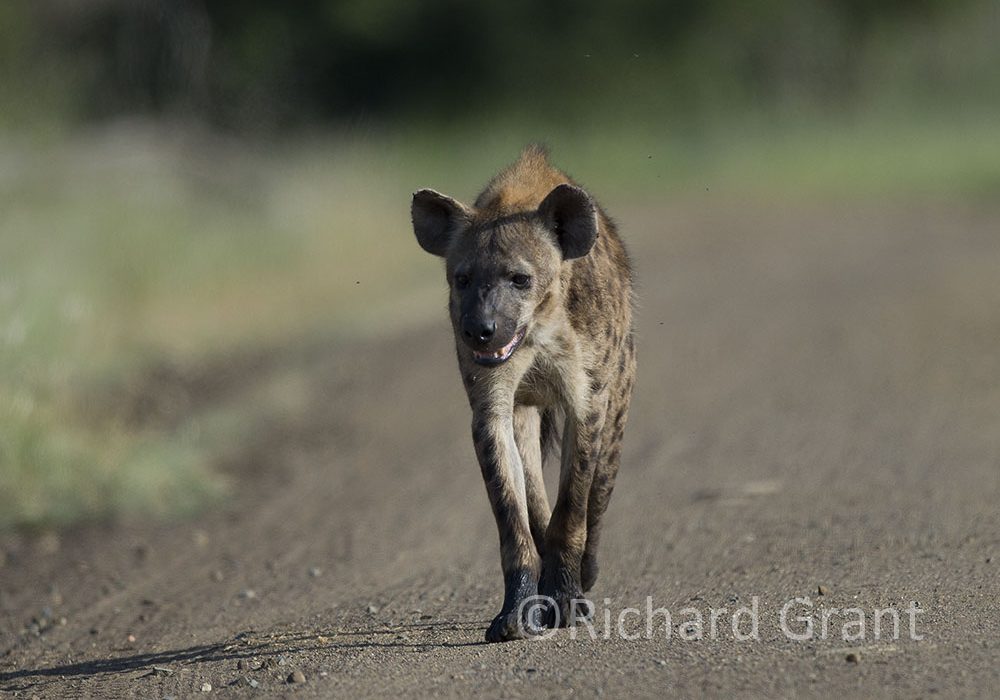
There is much of interest along the way to Welverdiend where we stop for breakfast. Some Ground Hornbills come foraging past the waterhole with their deep “fog horn” calls booming out.
With the sun fast rising, we turn and retrace our steps. Some 4kms from the tarred H1-3, an unobserved car races up behind us and then blasts us off the road with his hooter. Wheel spinning past us in anger, this next yobbo completely misses a pack of at least 17 wild-dogs resting in the shade close to the road. They do things very differently in the south of the Park.
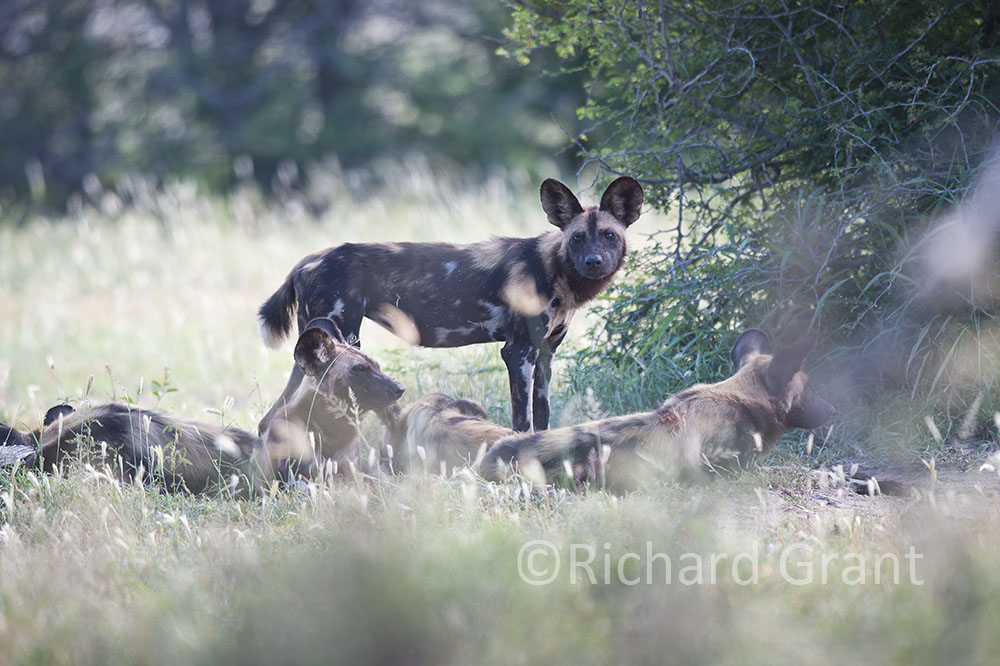
We stay with the dogs for a while but wild-dogs resting in the shade are not a very exciting sight – so we press on.
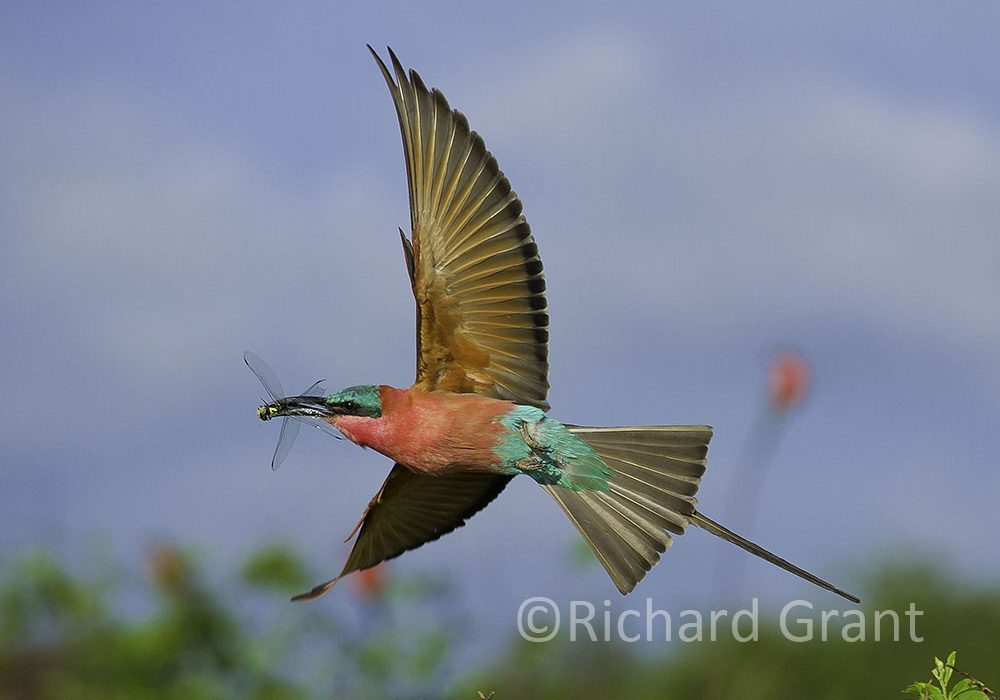
We come to the Sweni drinking trough which is surrounded by masses of zebras, wilderbeest and impalas.
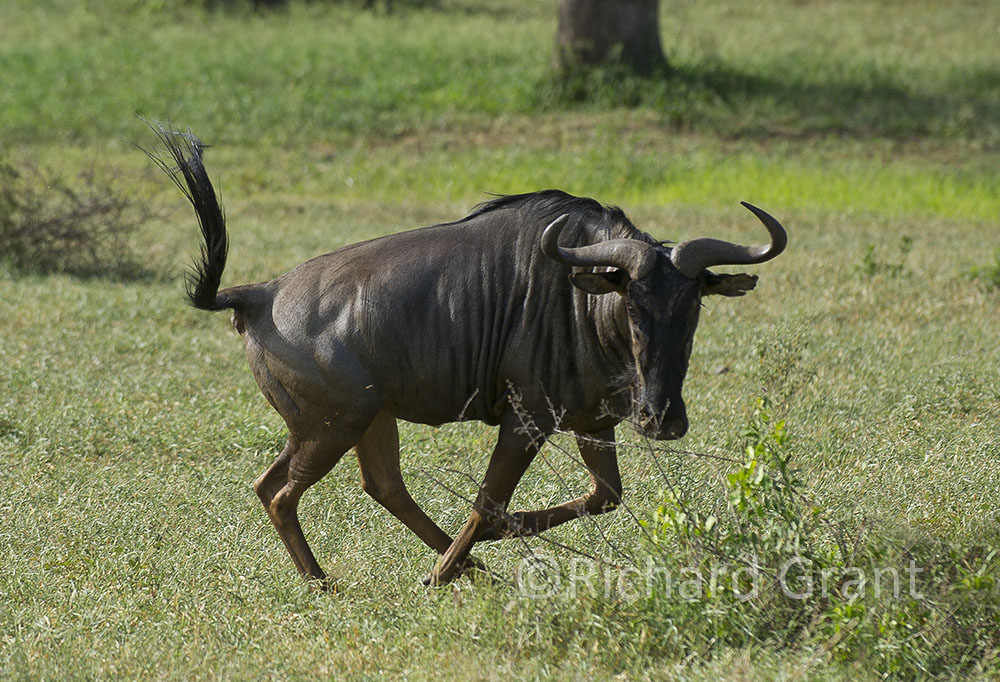
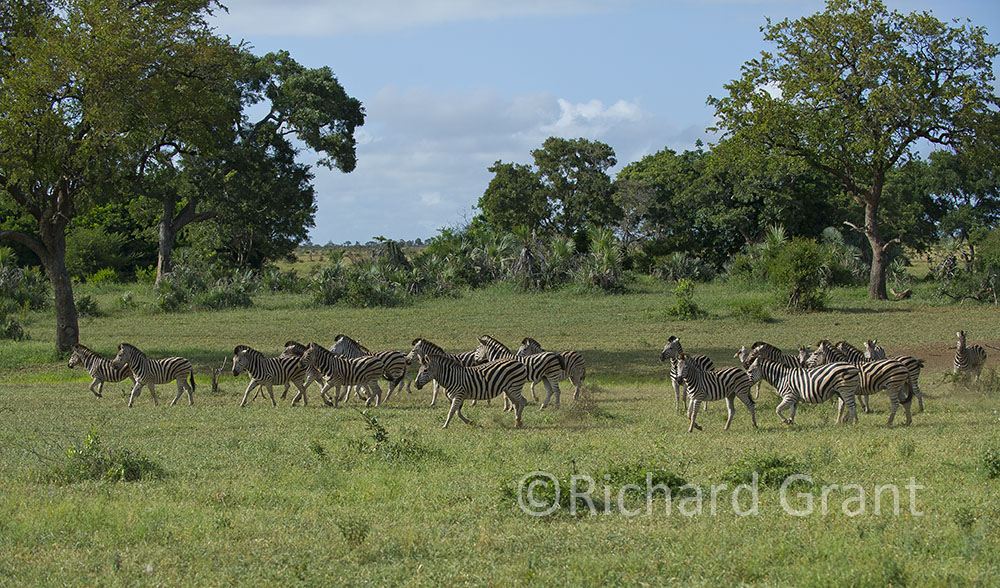
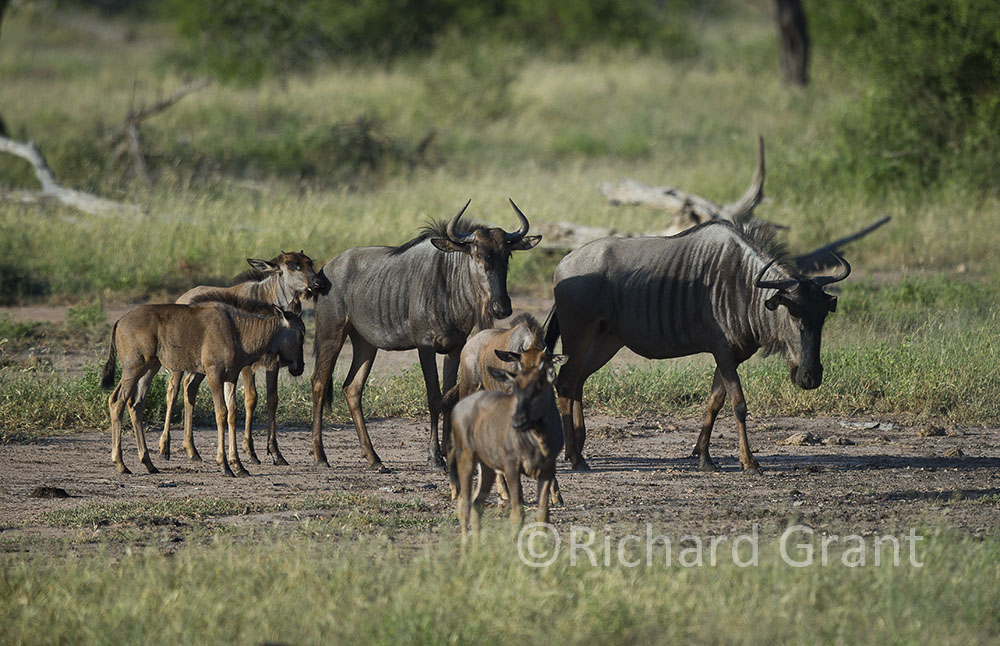
They are very nervous about drinking and someone tells us that lions were there yesterday. This also tells us that the recent rains must have been quite gentle and soaking leaving few standing pools thus forcing the animals to the drinking trough. We spend an hour there soaking up this most attractive scene and we resolve to come back regularly whilst we are here at Satara.
This after we do in fact return to the trough but other than zebras we see little.
Tuesday, 4th
Today is partly cloudy with even a smattering of rain drops – perfect for the S100. Down we go at 5,30am with only three well behaved cars in attendance. What a pleasure these summer months are.
Long grass again lines the road and although we see little out of the ordinary, it is a great time spent on this scenic road.
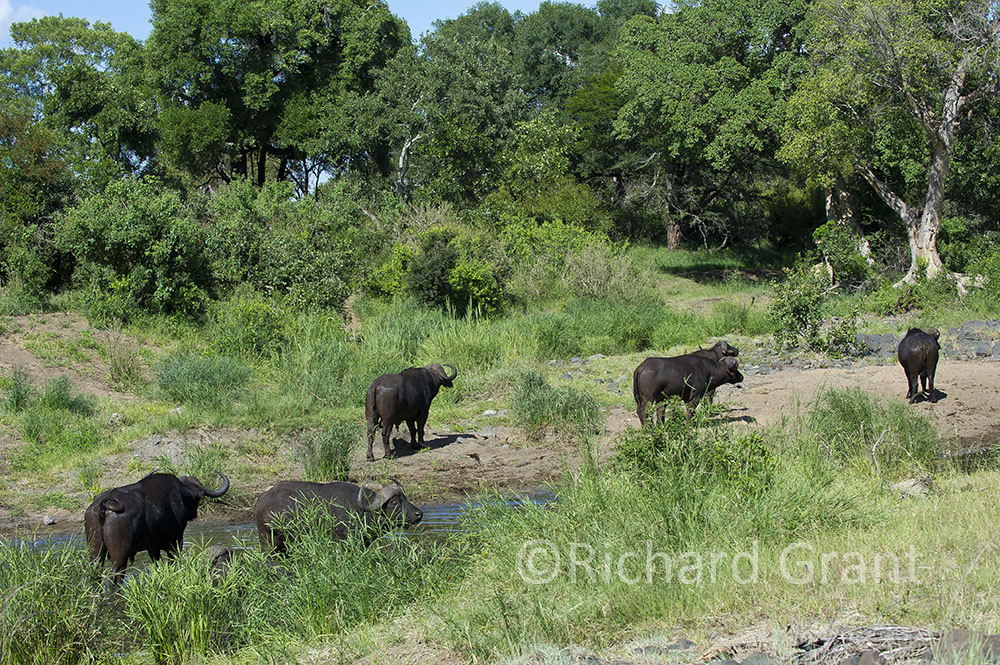
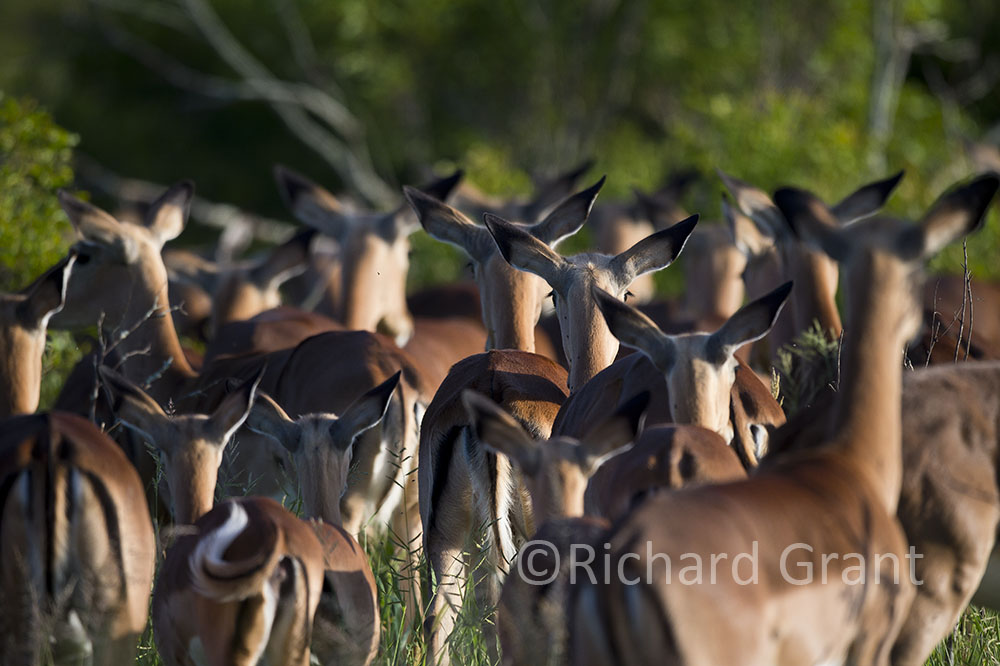

Again, we note that the streams are dry and that the Nwanetsi river has not flowed indicating that the rain has been steady and soaking. However, Gudzani Dam is brimming full and we find that its one feeder stream – the Gudzani in the east – has flooded, filling the dam.

This is real savanna Kruger. Which makes us realise that this is our fourteenth day in the Park and we have yet to see a lion.
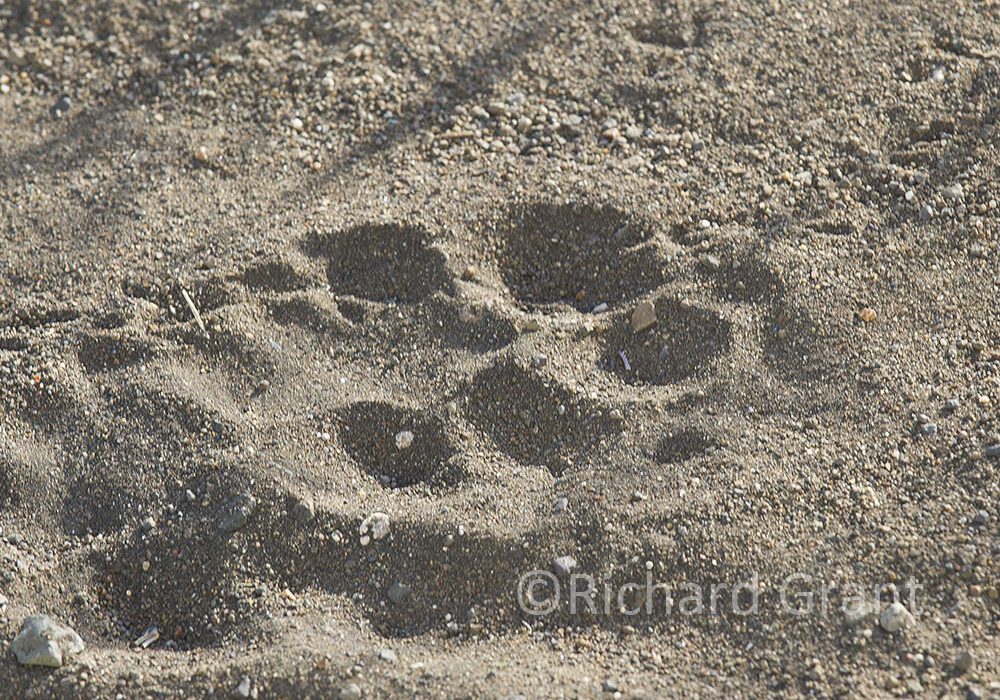
Not that, that worries us at all. We pause to watch a large herd of Zebras. We have read that these herds are made up of small families, One stallion with about six mares, and it is interesting to see these grouping amongst the herd as they graze over a wide area.

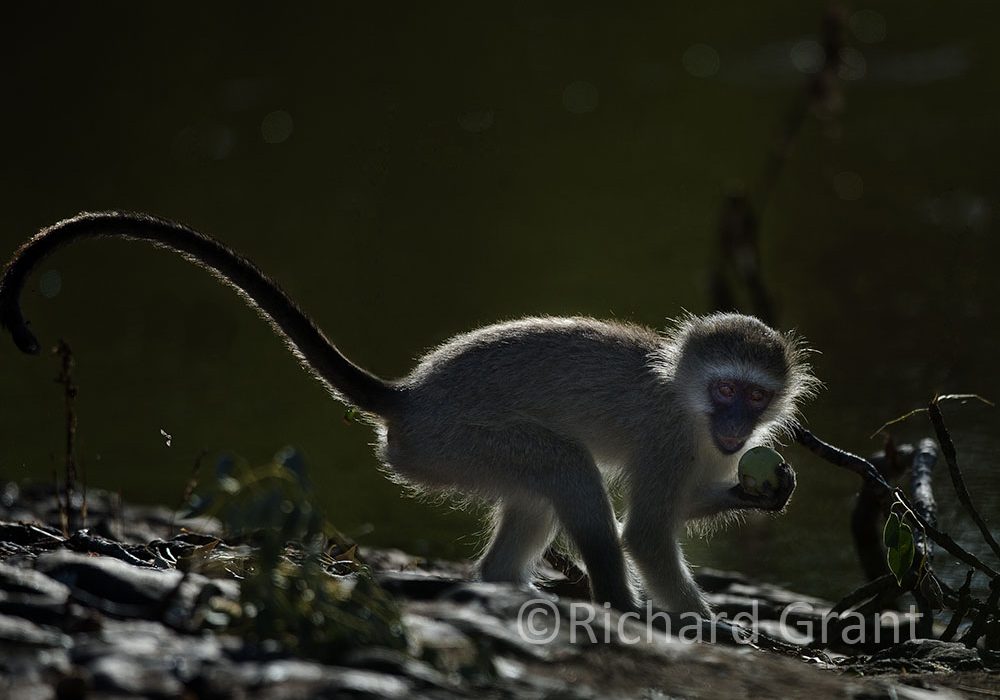
One peculiarity. Despite all the dense, high grass, we have not heard a single quail call – something that was such a feature in February two years ago. Maybe with the late rains they are busy nesting now. We do however see our first chicks with Crested Francolins.
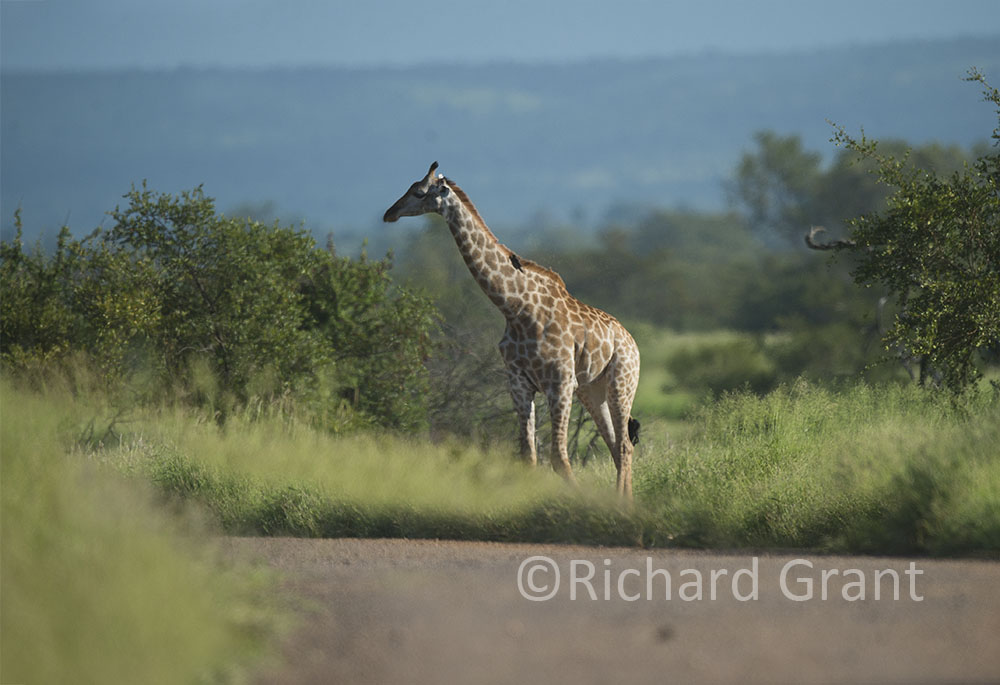
The day warms up and we are set for our exercise swim but………. the Satara pool is closed for maintenance. First Shingwedzi and now Satara – IN SUMMER. Really, it takes a day to fix a mechanical defect for a pool pump but with Kruger’s management, that certainly won’t happen. Maybe we must try Skukuza’s two pools.
We do a drive around the campsite and find that only 17 out of the 100 campsites are occupied.


There are few people in the chalets too and most are from Europe. Without sounding off too negatively, it must be said that Kruger’s lax management does not help matters.
Today is cool with fluffy clouds drifting in from the east. At 4.30pm we set off for Girivana Dam out west.
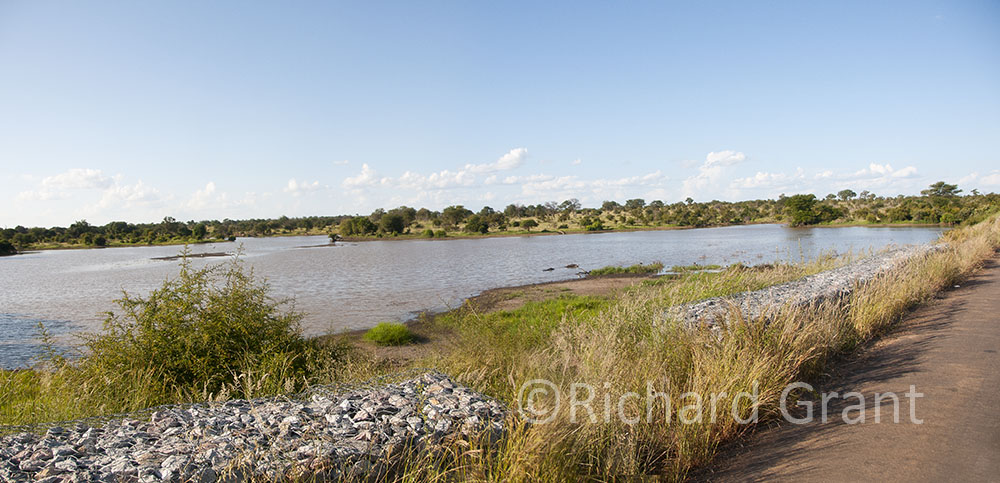
We first come to Nsemani Dam which is brim full of water. The water’s edge is lined with Comb and White-faced Ducks and Geese. We then take the S40 road out to Girivana and after tangling with a bad tempered Ellie, we reach the dam. What a beautiful sight it is in the late afternoon light.
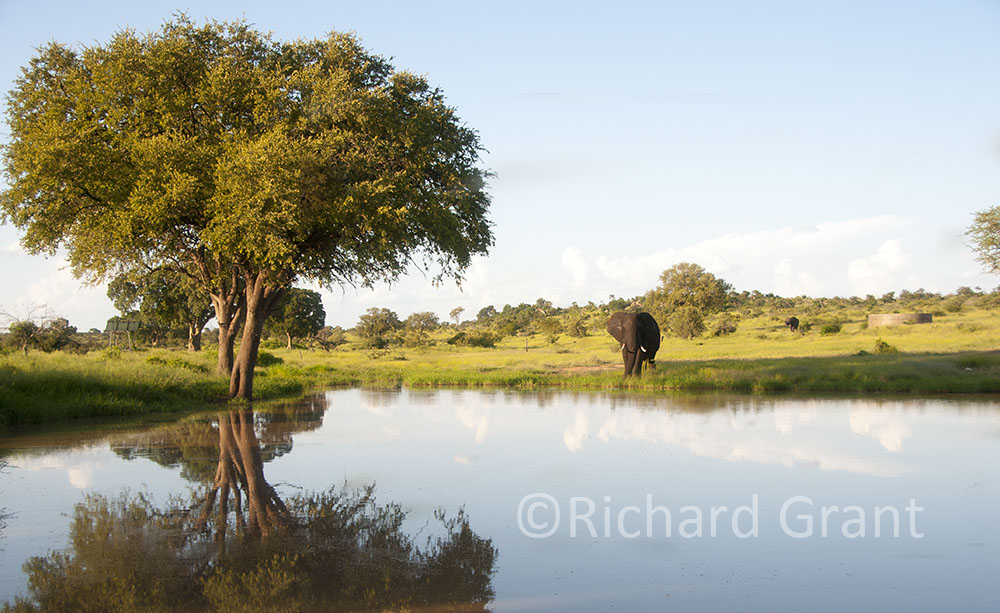
A wet summer really is a good time to be in Kruger. The richness of the veld is just so appealling. Renette then spots a pair of the rather rare Dwarf Bitterns in a nearby tree which I manage to photograph well.
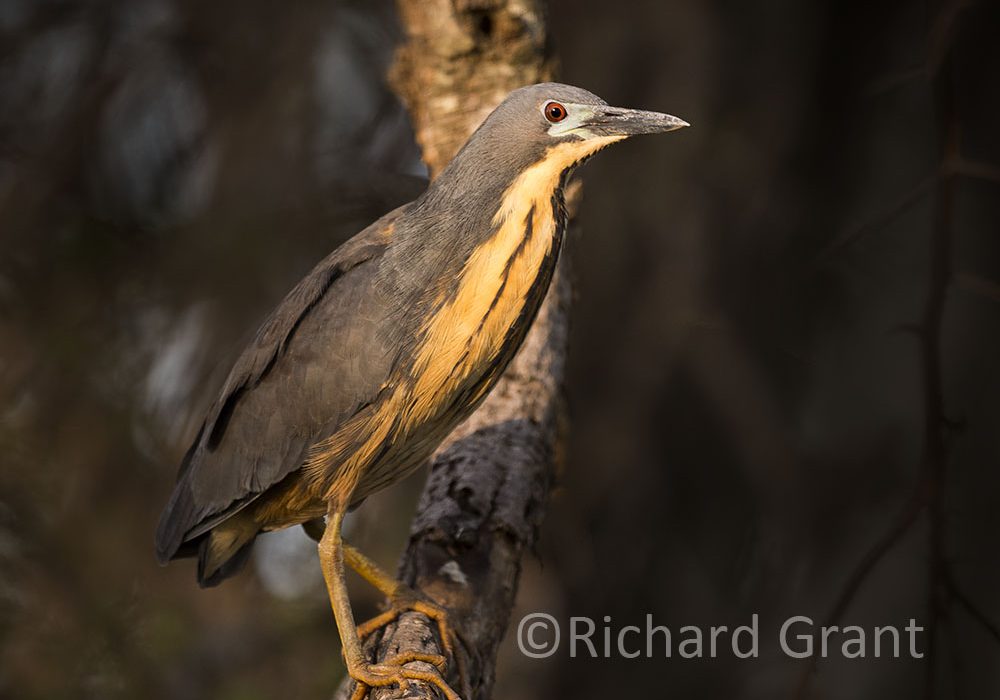
At 6pm we begin ambling back to camp with the sun at our backs.
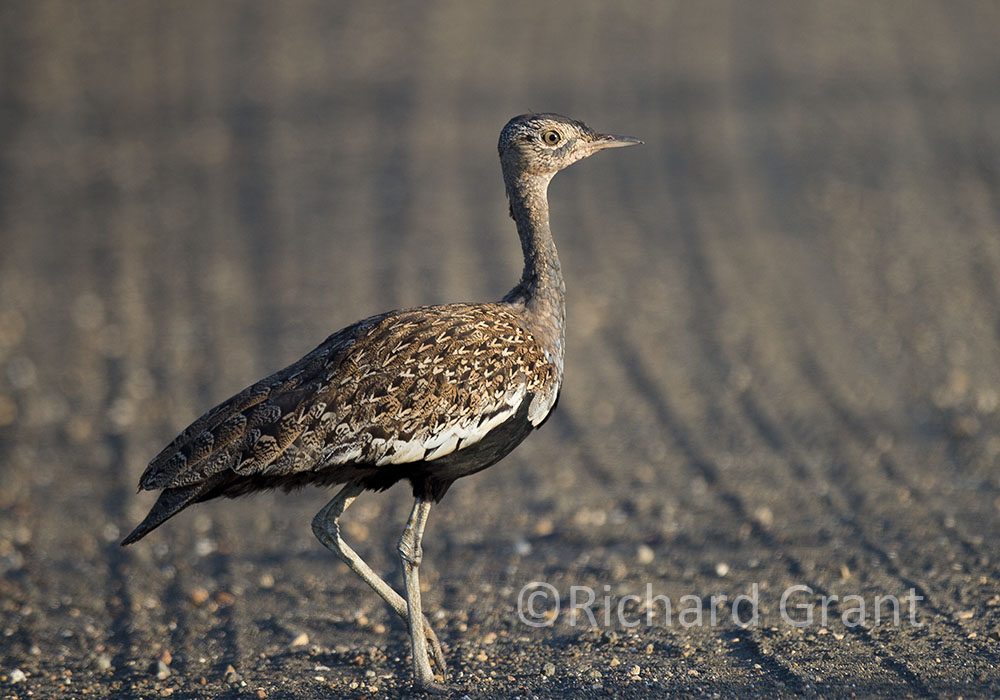
We arrive back at our campsite at 6.30pm and immediately find that our deep-freeze has been expertly opened and rifled of its contents. Our neighbour then comes over and tells us that a pair of streetwise Ratels (Honey Badgers) are the culprits and that he had a job driving them off. A trail of wors and other wrappers leads under the caravan. Peering underneath, we find a very laid back Ratel tucking into our roast leg of lamb.
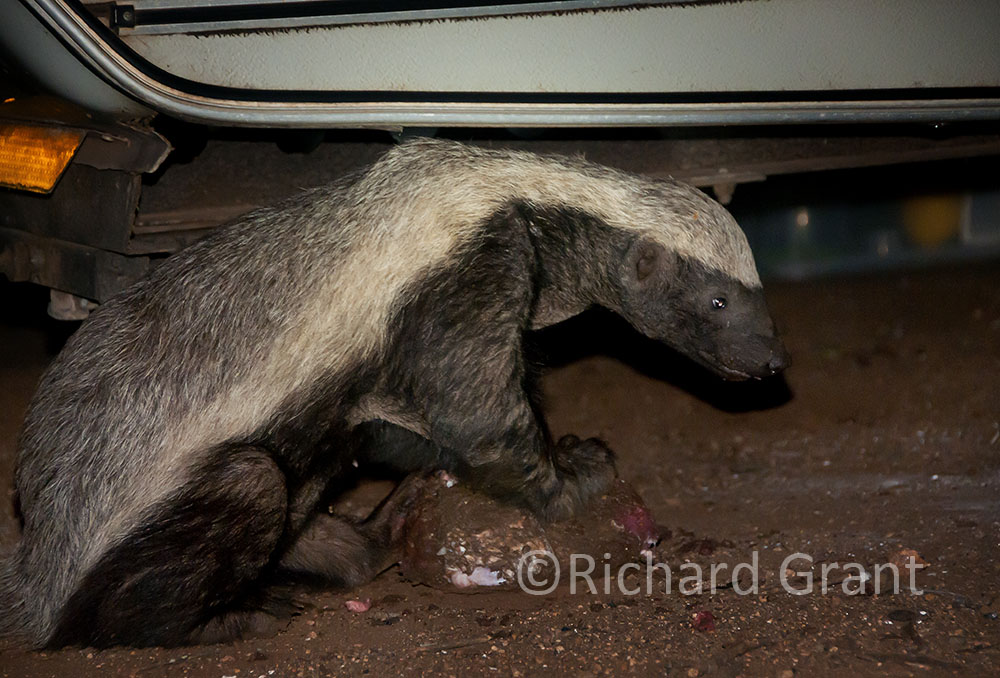
Completely indifferent to our presence and the torch playing over him, he calmly munches away on his trophy whilst I take photos. I am afraid the Ratels are amongst our favourite animals so we do find it difficult to be angry with them. But we are certainly going to have to tighten up on our security in future if we are going to protect our meat supply from these wily animals.

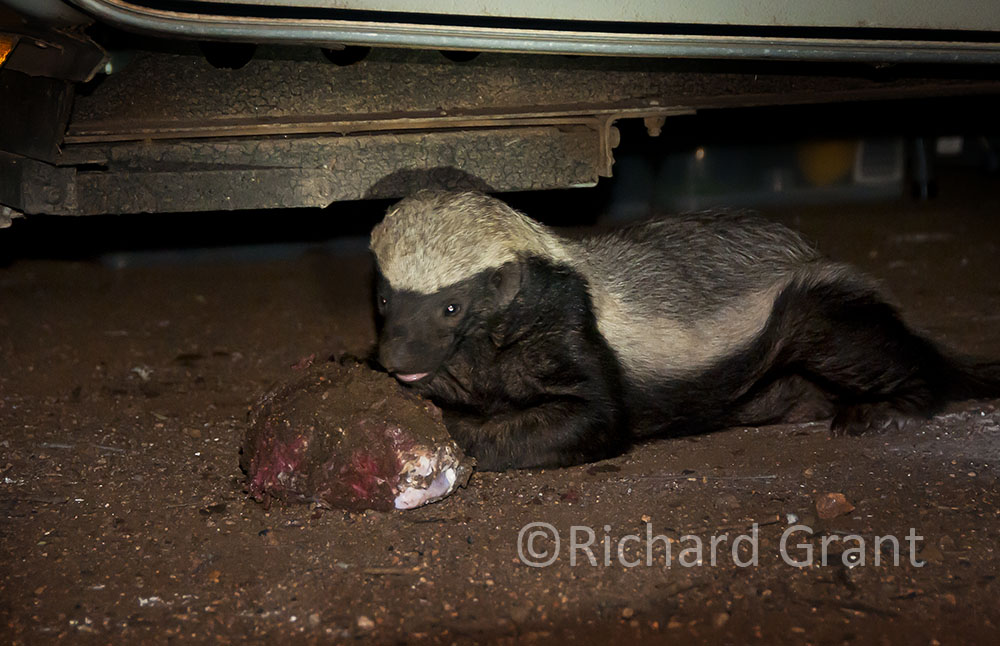
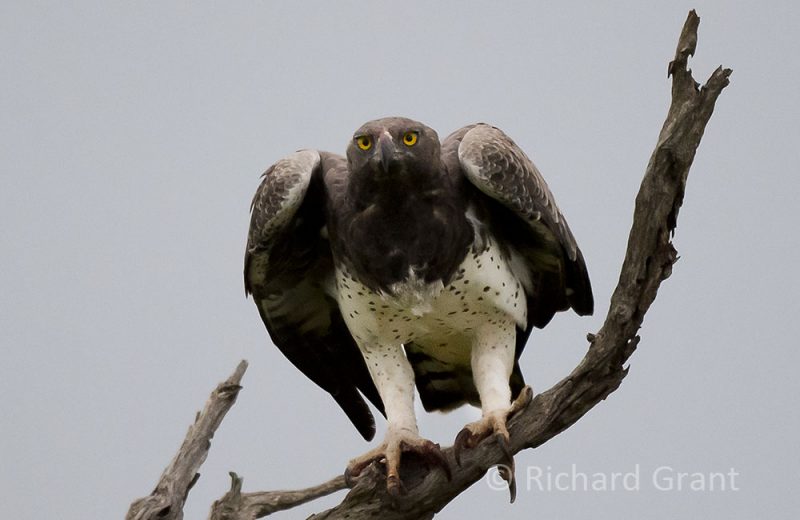
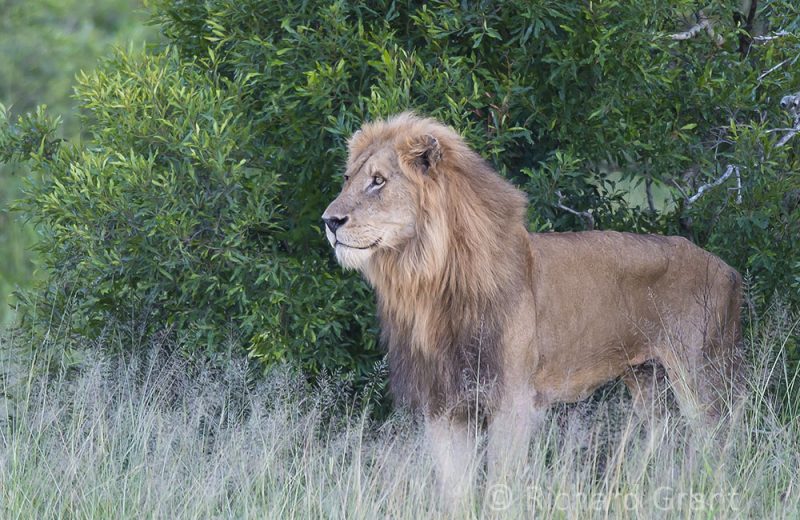
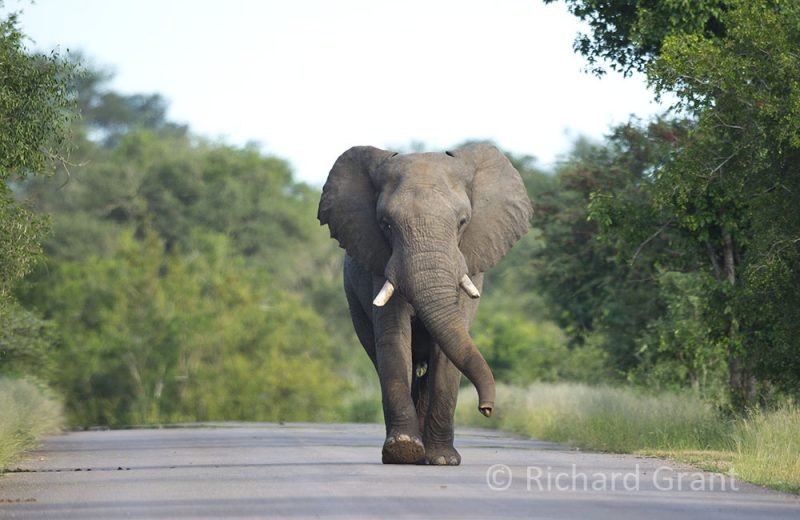
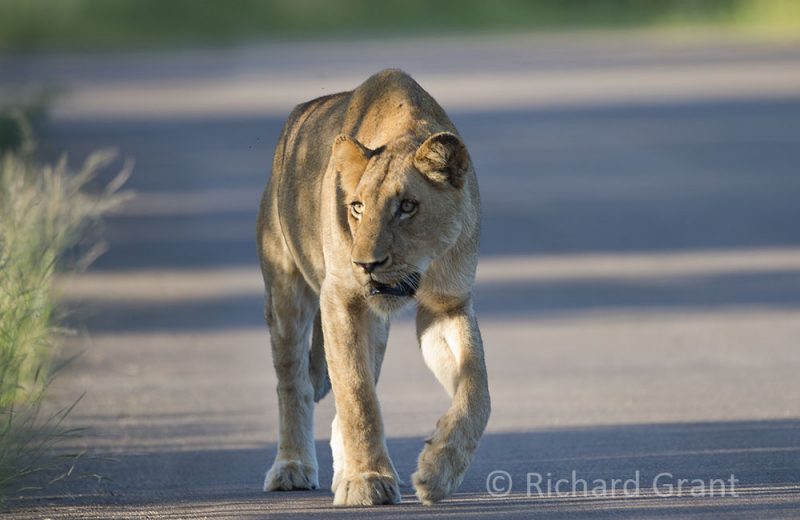
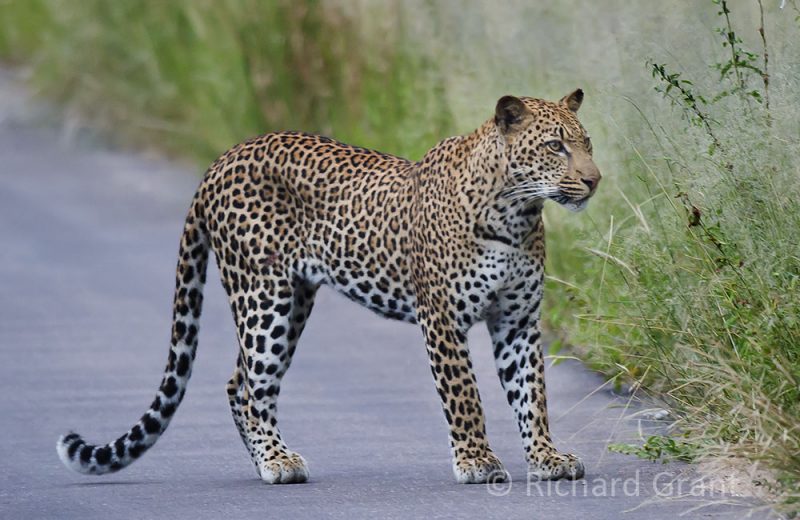
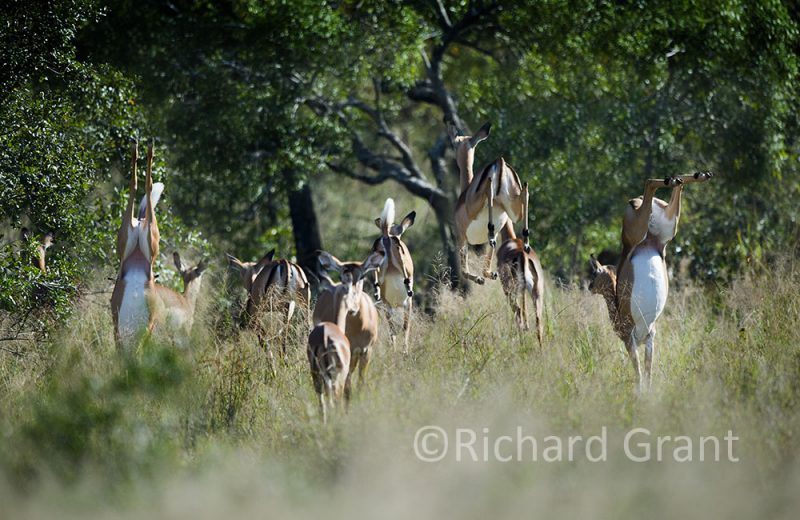
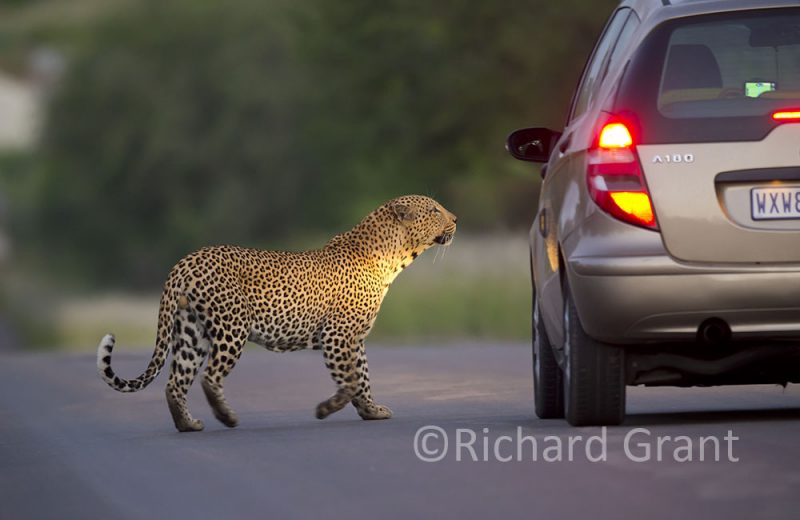
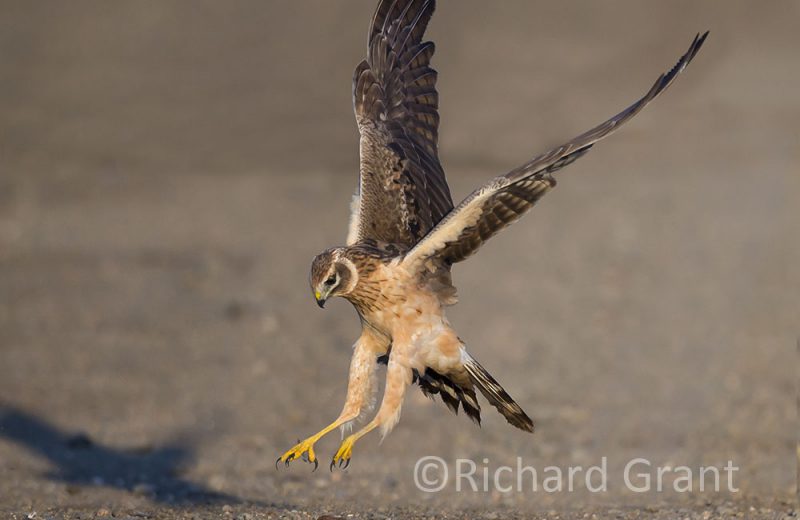

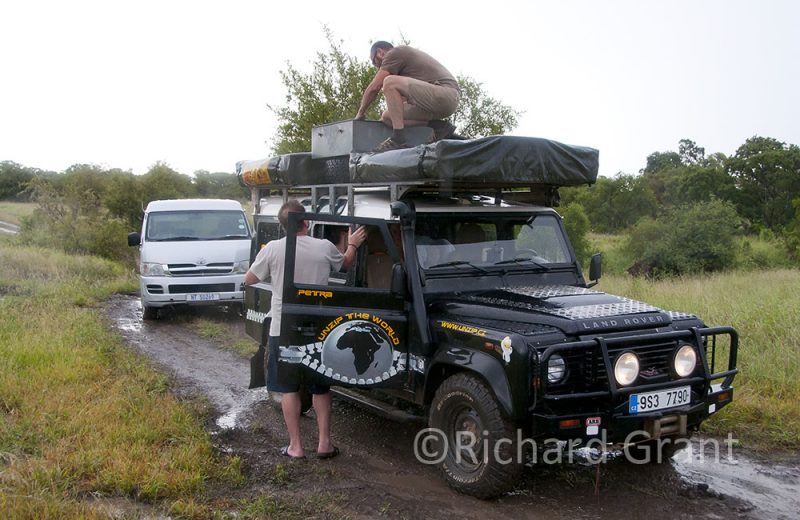

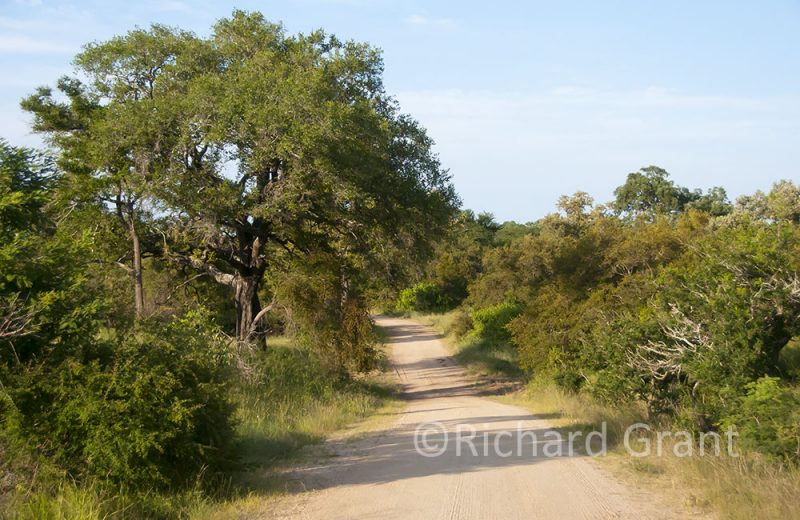
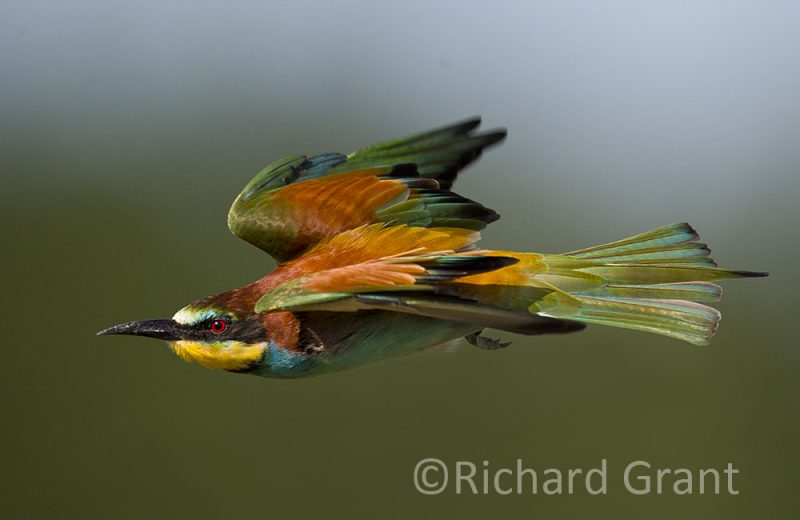
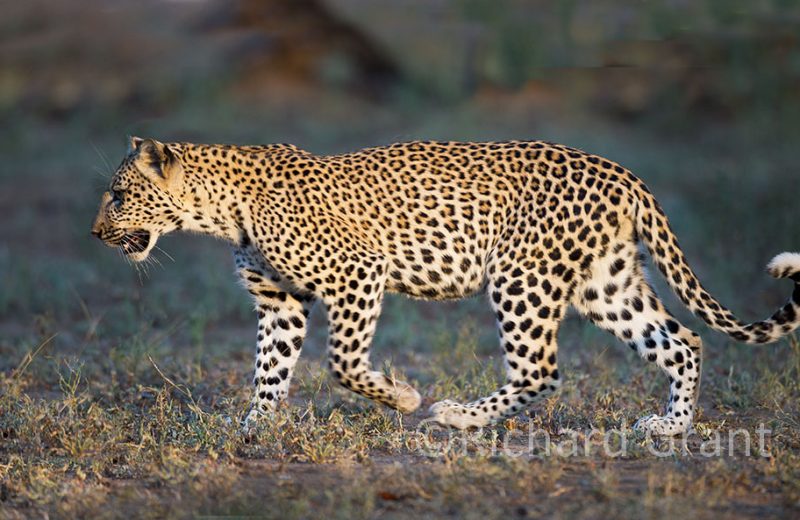
3 Comments
Jane Gom February 5, 2020 at 3:11 pm
The Ratels sure have expensive tastes.!
Richard Grant February 5, 2020 at 9:29 pm
We are going to have to chain our deep freeze in future. These Satara Ratels know exactly how to get through fastened lids.
Richard Grant February 5, 2020 at 9:31 pm
We are going to have to chain our deep freeze in future. These Satara Ratels know exactly how to get through fasteners.